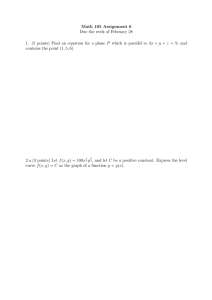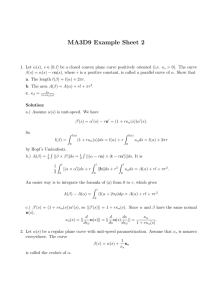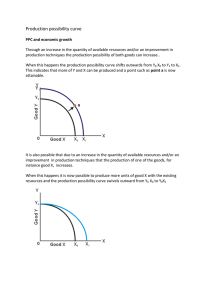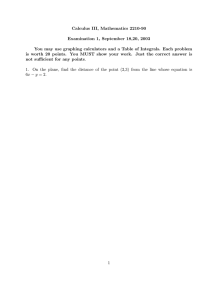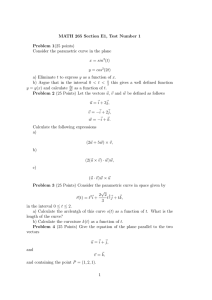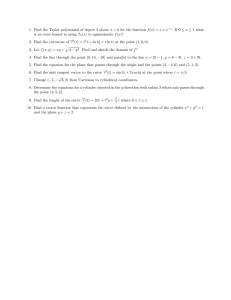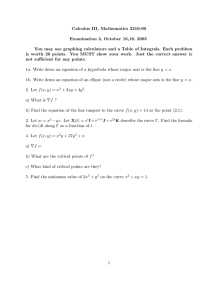MA3D9 Example Sheet 2
advertisement
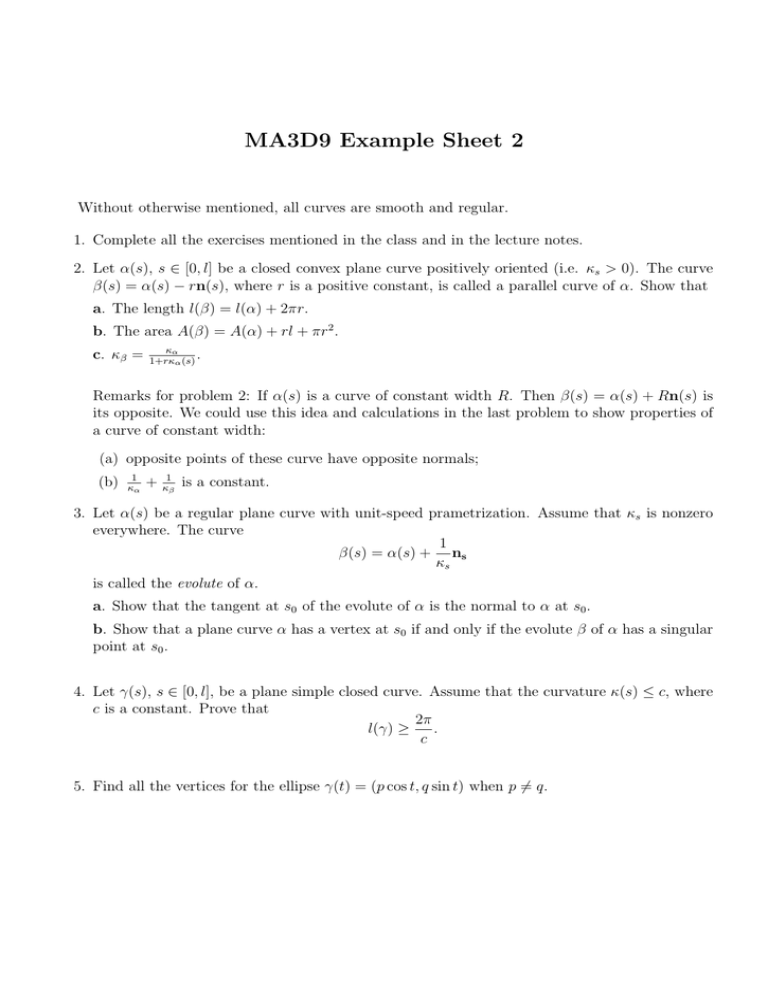
MA3D9 Example Sheet 2 Without otherwise mentioned, all curves are smooth and regular. 1. Complete all the exercises mentioned in the class and in the lecture notes. 2. Let α(s), s ∈ [0, l] be a closed convex plane curve positively oriented (i.e. κs > 0). The curve β(s) = α(s) − rn(s), where r is a positive constant, is called a parallel curve of α. Show that a. The length l(β) = l(α) + 2πr. b. The area A(β) = A(α) + rl + πr2 . c. κβ = κα . 1+rκα (s) Remarks for problem 2: If α(s) is a curve of constant width R. Then β(s) = α(s) + Rn(s) is its opposite. We could use this idea and calculations in the last problem to show properties of a curve of constant width: (a) opposite points of these curve have opposite normals; (b) 1 κα + 1 κβ is a constant. 3. Let α(s) be a regular plane curve with unit-speed prametrization. Assume that κs is nonzero everywhere. The curve 1 β(s) = α(s) + ns κs is called the evolute of α. a. Show that the tangent at s0 of the evolute of α is the normal to α at s0 . b. Show that a plane curve α has a vertex at s0 if and only if the evolute β of α has a singular point at s0 . 4. Let γ(s), s ∈ [0, l], be a plane simple closed curve. Assume that the curvature κ(s) ≤ c, where c is a constant. Prove that 2π . l(γ) ≥ c 5. Find all the vertices for the ellipse γ(t) = (p cos t, q sin t) when p 6= q.
